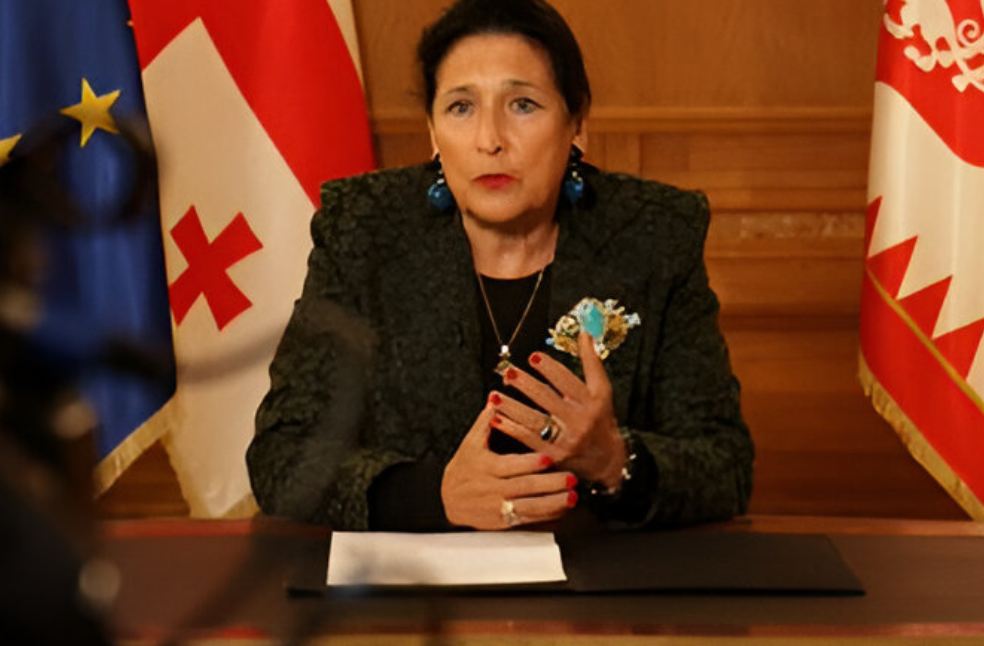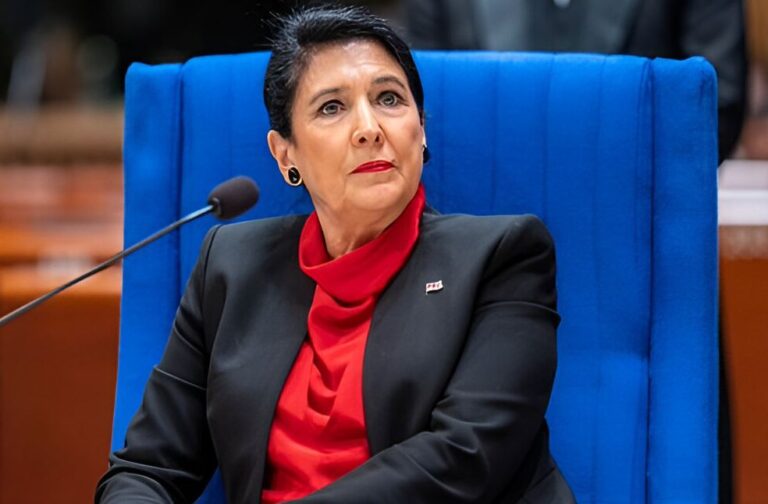Georgia: Political crisis deepened as Georgian President Salome Zourabichvili has declared she would remain in office beyond her term’s end in December, citing an “illegitimate parliament” unsuitable to elect her successor. This announcement came as thousands of Georgians took to the streets for a third consecutive night, opposing the government’s suspension of European Union accession talks.
Prime Minister Irakli Kobakhidze, whose government has been fostering closer ties with Russia, declared a four-year pause in EU talks, accusing the bloc of “blackmail.” The decision has sparked outrage in the pro-EU nation, where EU membership is enshrined in the constitution.
Zourabichvili stated that, “There is no legitimate parliament, and therefore, an illegitimate parliament cannot elect a new president. Thus, no inauguration can take place, and my mandate continues until a legitimately elected parliament is formed.” The Interior Ministry reported the arrest of 107 protesters in the capital, Tbilisi, during overnight demonstrations that saw barriers and clashes with police using tear gas and water cannons.

The unrest has drawn parallels to Ukraine’s 2014 Maidan revolution, with Kobakhidze warning of a similar attempt to overthrow the government. The U.S. State Department blamed the use of excessive force against protesters and announced it was suspending its strategic partnership with Georgia. Spokesperson Matthew Miller criticised the Georgian Dream government for its “betrayal of the constitution” and its drift toward Kremlin-style policies.
Georgia’s EU aspirations have faced limitations due to laws criticised for curtailing human rights and mirroring Russian legislation, including restrictions on LGBTQ rights and foreign agents. The situation highlights the country’s precarious balancing act between Western integration and pressure from Moscow, which has impacted Georgian politics since the 2008 war over South Ossetia and Abkhazia.



